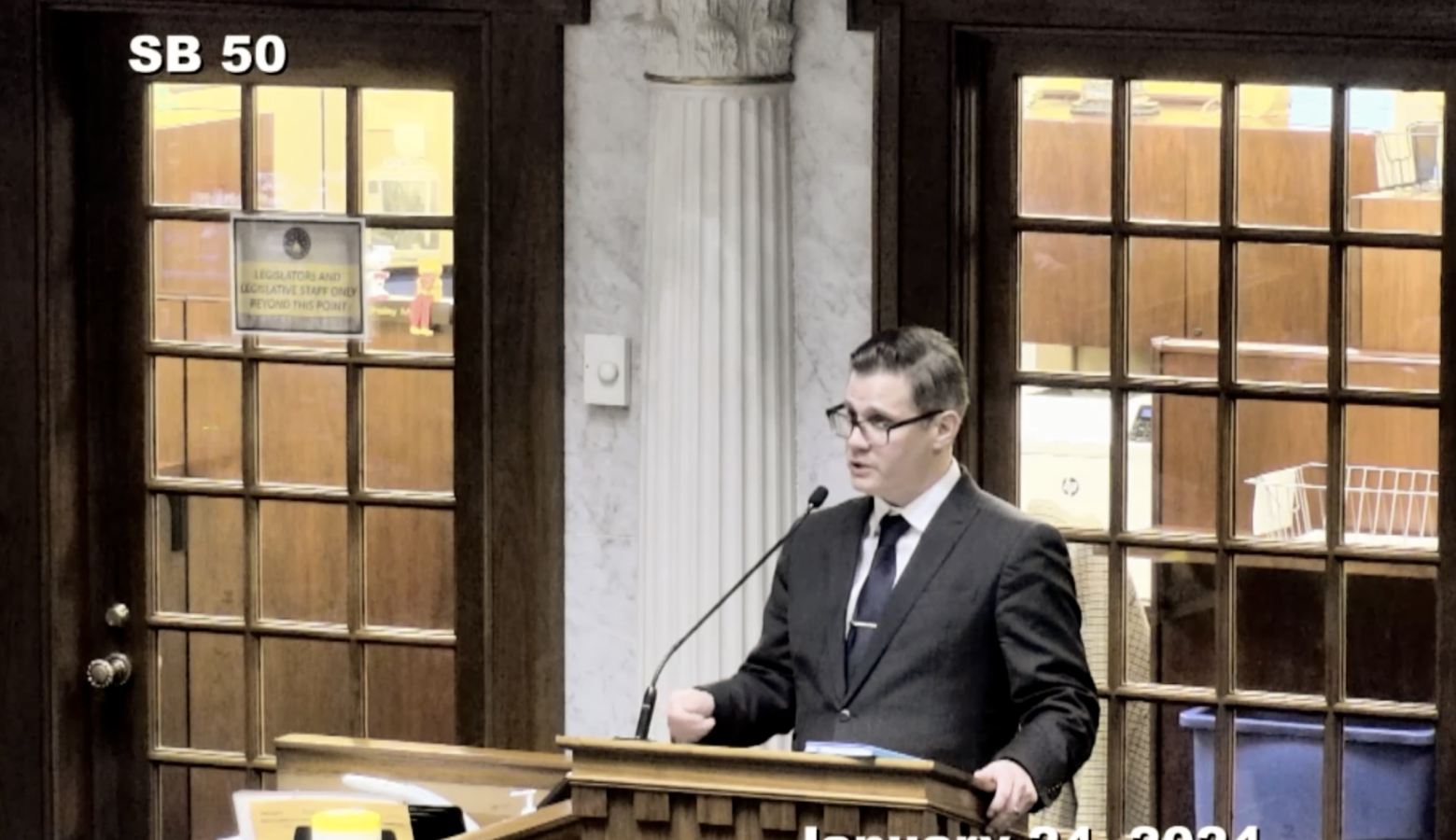Lawmakers debate merits, concerns with bill to allow chaplains in public schools

State lawmakers are considering a bill that would allow public schools to hire chaplains to speak with students and staff members during school hours. Democratic lawmakers expressed concern Wednesday that the role and abilities of chaplains in public schools are not clearly defined in the bill.
Sen. Stacy Donato (R-Logansport) wrote Senate Bill 50. She said chaplains could act as another tool in schools’ toolboxes, especially considering Indiana’s school counselor shortage. She added many chaplains could be willing to work as volunteers in schools.
“It is up to local control of the schools if they would like to add this resource to their district,” Donato said.
Scott Carr, a representative for the Indiana School Counselor Association, said the organization is in favor of the bill. He said Indiana has an average ratio of 694 students to every one school counselor, compared to the recommended ratio of 251 students per school counselor.
Some of the bill’s critics said they are concerned that chaplains do not undergo the same training as school counselors. The bill requires chaplains working in schools to have their master’s degree in a field related to divinity, theology or religious studies; at least two years of counseling experience; and a clean background check.
Carr said Indiana requires about two years of schooling to become licensed as a school counselor.
Sen. Shelli Yoder (D-Bloomington) said she had concerns that two years of counseling experience in a church setting could be very different from two years of counseling in a clinical practice.
“Could we provide some guardrails around this or some clarity?” Yoder asked after she questioned Carr about how school counselors are licensed.
Rev. Gray Lesesne, a pastor at Christ Church Cathedral in Indianapolis, testified against the bill. He said that as a clergy member, he would be eligible to serve in schools but does not feel comfortable with counseling children in a school setting.
“I have far more than two years of experience in pastoral counseling as a pastor, and I can tell you that I am in no way prepared or qualified either academically or professionally to serve as a secular counselor or academic adviser or chaplain at a public school,” Lesesne said. “Seminaries do not require any courses in counseling, childhood, youth psycho-social development, or educational theory in order to receive a master of divinity degree.”
Lesesne said he is required to refer anyone who seeks specific counseling for any particular mental health issue more than three times to a licensed mental health counselor.
Democratic members of the Senate Education and Career Development Committee also asked questions about the specific services chaplains would be allowed to provide to students.
READ MORE: How do I follow Indiana’s legislative session? Here’s your guide to demystify the process
Join the conversation and sign up for the Indiana Two-Way. Text “Indiana” to 765-275-1120. Your comments and questions in response to our weekly text help us find the answers you need on statewide issues, including our project Civically, Indiana and our 2024 legislative bill tracker.
The bill stipulates chaplains would only provide “secular advice, guidance, and support services” to students on a regular basis. They could also provide religious guidance, but only to students with parental permission or who seek out that service themselves.
“The idea of a chaplain is not to convert people to a different religion,” Donato said. “They are there to support people regardless of what their faith is.”
Yoder expressed concern that a chaplain’s role is inherently religious. She said the bill needs more provisions that would alert parents when their children speak to chaplains. Yoder also said the line between secular and religious counsel should be more clearly defined.
Sens. J.D. Ford (D-Indianapolis) and Andrea Hunley (D-Indianapolis) echoed Yoder’s concern about notifying the parents of students who speak with school chaplains. Unless a student is referred to a chaplain by a school counselor, there is nothing in the bill that requires parents to be notified.
“I think there are times when we give so much attention to detail about parental communication, and I would just really like to see that considered here, especially because we are talking about something that is so intimate,” Hunley said. “This is a one-on-one conversation with an adult that would be happening, and as a parent, I would want to know.”
Representatives from the Indiana School Boards Association, the Indiana Family Institute and the Indiana Urban Schools Association all spoke in favor of the bill.
The bill also received opposition from the ACLU of Indiana. Executive Director Chris Daley said, among other issues, there needs to be more explicit language that lists chaplains as mandated reporters.
“If the committee does pass this bill, we urge you to have much clearer language in the final section related to the confidentiality of these meetings,” he said. “There are some provisions that are cited. However, Indiana Code 31-33-5-2, which is the mandatory reporting section, is not explicitly discussed. It’s going to cause confusion when this is rolled out.”
Daley also expressed concern that parents who force their children to meet with a chaplain at school could being violating their children’s rights.
Jim Bopp, a prominent conservative attorney, said parents encouraging their children to have religious discussions with chaplains is no different from parents taking their children to church.
Yoder proposed three amendments that would have required children to be emancipated minors or older than 18 to seek religious counsel, explicitly required chaplains to report child abuse and neglect, and called for spiritual advice to be religiously neutral. All three amendments were defeated along party lines.
The Senate Education and Career Development Committee passed the bill along party lines. It now proceeds to the full Senate for a vote.
Kirsten is our education reporter. Contact her at kadair@wfyi.org or follow her on Twitter at @kirsten_adair.
